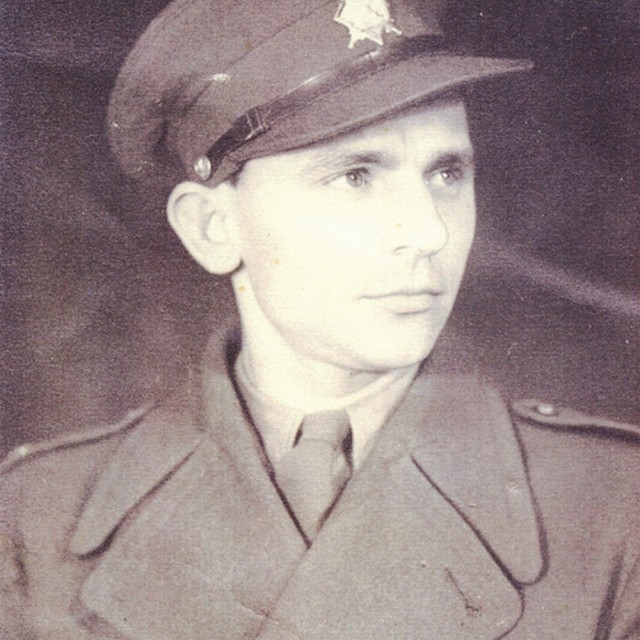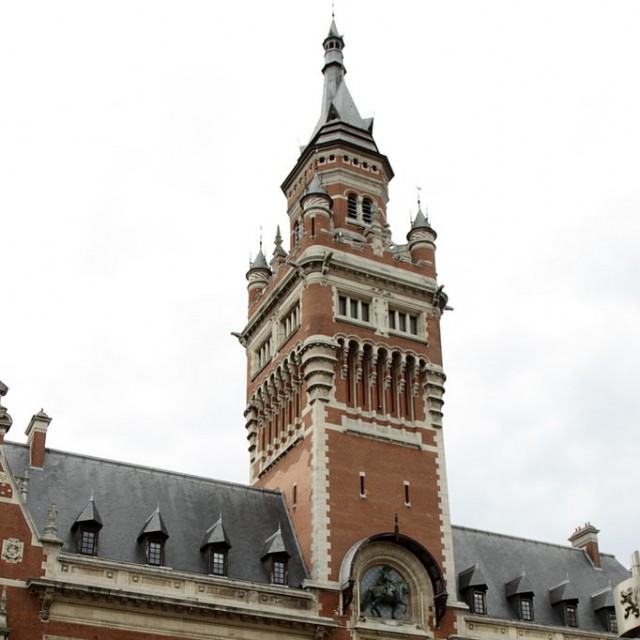
Antonín Špaček, major general retired
Antonín Špaček was born May 23rd 1917 in the Haná region in the village of Hradčany, Prostějov district. Altogether he had 12 siblings; three of them served as legionaries in WWI and one of the brothers joined the so-called green corps (and thus he did not have to take part in combat on the front). His brother Čeněk, a legionary from Russia, also inspired Antonín to patriotism and the desire to serve in the army. In 1937, Antonín Špaček joined the Czechoslovak army, and a year later, during the mobilization in September 1938, he already commanded a machine-gunners platoon as a sergeant cadet in Horní Benešov (between the towns of Bruntál and Opava). After the occupation of the rest of the republic in March 1939 and the formation of the Protectorate of Bohemia and Moravia he decided to join illegal resistance activity towards the end of 1939. There, his task was to exchange foreign currency and then pass the money to emigrants from the Protectorate and to future legionaries. He remained with the resistance group till January 18th 1940 when one of the members was arrested, and Antonín Špaček decided to flee the country. He left for Hungary, where he reported to the French consulate in Budapest. Together with four other emigrants he was then to report to General Heliodor Píka in Romania. However, the whole group was arrested in Chust in Carpathian Ruthenia and held in various prisons for 2,5 months. In Košice, Antonín Špaček managed to escape, and with the help of some Poles he got to Beograd in Yugoslavia via Hungary, and from Beograd then by the so-called Balkan way to France. There he was assigned to the 10th infantry company of the 3rd battalion of the 1st Czechoslovak infantry regiment, and at the town of Coulommiers they fought to withhold the German advancement toward Paris. After the capitulation of France, Antonín Špaček got to Great Britain via the port of Séte in southern France. There, he was first assigned to sea guard (due to anticipating a possible German invasion to Britain), later he joined the training as a gunsmith, although he originally desired to become a pilot. In 1943 he met Jean Wenda Thomas, whom he later married. Their son Milan was born before the end of the war. Antonín Špaček was assigned to the independent Czechoslovak armoured brigade as an armaments and technical officer. After the invasion of Normandy in 1944 he took part in encircling the Germans near the city of Dunkerque. After the end of the war and return to Czechoslovakia he served in the Castle Guard. During the war he lost his brother, who was tortured to death in Mauthausen in 1942. His other brother, sister, and mother had also been imprisoned. After the war he entered the Military Academy, but after the communist coup d´état he was dismissed from the academy and he voluntarily left the army. He planned to leave Czechoslovakia and go to Great Britain to his wife and son. He was however arrested and sentenced to 10 years of imprisonment, he spent 5,5 years in prison. The court's argument was that had he not been permitted to leave the country legally, he would have done so illegally like in 1939 and as an officer he would have leaked confidential information to western intelligence services and thus committed the crime of high treason. The last two years of his penalty were spent in the Jáchymov mines, where he decided to continue working even after his release. He spent a total of 13 years working in the mines in Jáchymov. In 2001 and 2004 he served as the chairman of the Czechoslovak Association of Legionaries. In 2004 French President Jacques Chirac decorated him with the Order of the Legion of Honour, and in 2006, Czech President Václav Klaus awarded him the Order of the White Lion. He died April 3rd 2007 at the age of nearly 90.






